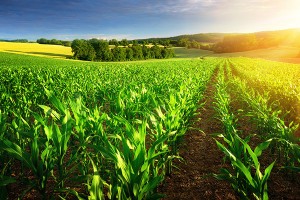Sustainability management
The students of Sustainability management can gain knowledge and practical skills within the courses related to the environment (including climate change and its consequences, natural hazards, water management problems, waste management, responsible management of environmental resources, protection of natural ecosystems and biodiversity); socio-economic issues (focused on specific models of economic development and social life, the impact of environmental changes on social interactions); management (management and leadership as mechanisms of planning and implementation of tasks).
The graduates will be ready to forecast and identify the most pressing problems of the contemporary world, analyse them, and evaluate ecological and human risks.
They will also be able to design solutions to various crisis situations in the human environment-related, among others, to climate change, natural disasters, water resource deficits, ecosystem transformation, biodiversity reduction, energy security, etc.
Dla kogo studia na kierunku sustainability management
The programme is addressed to candidates holding high school diploma.
Program kształcenia na kierunku sustainability management
Course structure:
- introduction to sustainable development
- population and sustainablility
- Nature conservation and restoration
- Earth system dynamics
- Ecosystem services
- Sustainable development policies
- Sustainable agriculture
- GIS for environmental analysis
- Global climate change
- Water global crisis
- Natural hazards
Przedmioty maturalne i zasady rekrutacji na kierunku sustainability management
Admission of candidates is based on a highest final grade in one of the following subjects:
- Biology,
- Chemistry,
- Physics,
- Geography,
- Mathematics taken
in the secondary school leaving examination.
Perspektywy pracy po kierunku sustainability management
The graduates will be prepared to work in all types of organizations, companies and institutions that aim to build more environmentally friendly practices at the local, state and global levels. They may be employed as:
- analysts,
- consultants,
- planners,
- managers,
- directors or educators.
They can work in biological, chemical, hydrological, water and wastewater and waste laboratories; local and state government and non-governmental organisations, agencies and departments monitoring, organizing and supporting activities for sustainable development, and educational institutions of all levels.
Opinie o kierunku sustainability management
Kierunki pokrewne do kierunku sustainability management
Jakie uczelnie oferują kierunek sustainability management
W których miastach można studiować kierunek sustainability management
Komentarze (0)
Zobacz również

Studia rolnicze i przyrodnicze w Białymstoku i woj. podlaskim

Studia rolnicze i przyrodnicze w Gdańsku i woj. pomorskim

Studia rolnicze i przyrodnicze w Katowicach i na Śląsku

Studia rolnicze i przyrodnicze w Kielcach i woj. świętokrzyskim

Studia rolnicze i przyrodnicze w Krakowie i Małopolsce

Studia rolnicze i przyrodnicze w Lublinie i woj. lubelskim

Studia rolnicze i przyrodnicze w Olsztynie i woj. warmińsko-mazurskim

Studia rolnicze i przyrodnicze w Opolu i woj. opolskim

Studia rolnicze i przyrodnicze w Poznaniu i woj. wielkopolskim

Studia rolnicze i przyrodnicze w Rzeszowie i woj. podkarpackim

Studia rolnicze i przyrodnicze w Szczecinie i woj. zachodniopomorskim

Studia rolnicze i przyrodnicze w Toruniu, Bydgoszczy i woj. kujawsko-pomorskim

Studia rolnicze i przyrodnicze w Warszawie i woj. mazowieckim

Studia rolnicze i przyrodnicze w Zielonej Górze i woj. lubuskim

Studia rolnicze i przyrodnicze w Łodzi i woj. łódzkim














































































































































